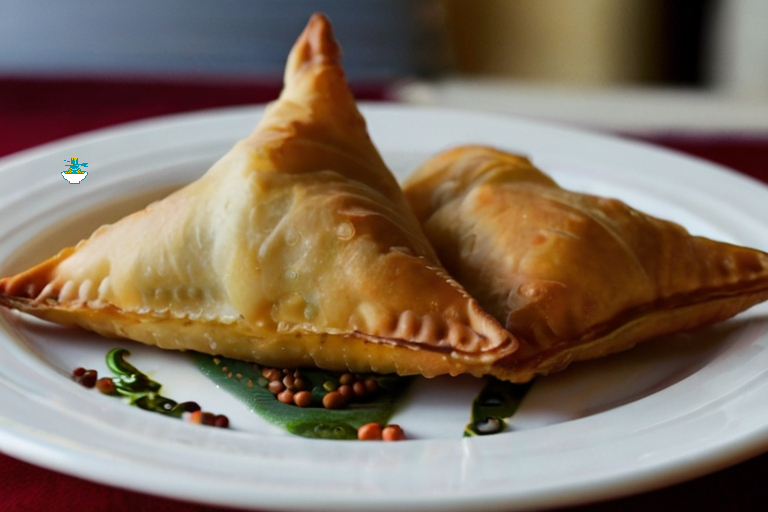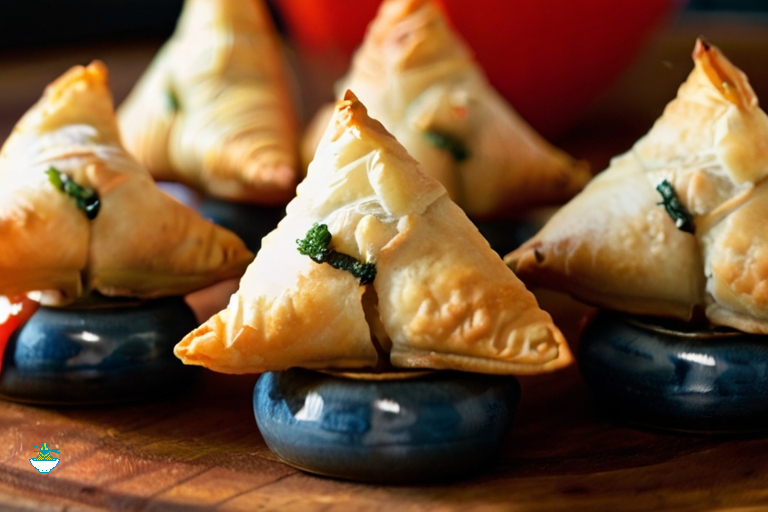Indulge in the rich culinary heritage of Djibouti with our mouthwatering Sambusa pastries! Bursting with flavor and tradition, these golden pockets of delight are a beloved staple in Djiboutian cuisine. Each bite unveils a tantalizing blend of seasoned ground meat or lentils, fragrant spices, and aromatic herbs, all encased in a crispy, flaky pastry shell. Whether enjoyed as a savory snack, appetizer, or part of a hearty meal, our Djibouti Sambusas promise to transport your taste buds to the vibrant streets of Djibouti City. Experience the essence of East African cuisine with every savory bite!
Here's a recipe for Djibouti Sambusa:
Ingredients:
For the dough:
- 2 cups all-purpose flour
- 1/2 teaspoon salt
- 1/4 cup vegetable oil
- 3/4 cup water
For the filling:
- 1 lb ground beef or lamb (for a vegetarian option, you can use cooked lentils or mixed vegetables)
- 1 small onion, finely chopped
- 2 cloves garlic, minced
- 1 teaspoon ground cumin
- 1 teaspoon ground coriander
- 1/2 teaspoon paprika
- Salt and pepper to taste
- Vegetable oil for frying

Instructions:
1- In a mixing bowl, combine the flour and salt. Gradually add the vegetable oil and water, mixing until a dough forms. Knead the dough on a lightly floured surface for about 5 minutes until smooth. Cover the dough with a damp cloth and let it rest for 30 minutes.
2- While the dough is resting, prepare the filling. In a skillet over medium heat, cook the ground meat (or lentils/vegetables) until browned, breaking it apart with a spoon as it cooks. Add the chopped onion and minced garlic, and cook until softened.
3- Stir in the ground cumin, ground coriander, paprika, salt, and pepper. Cook for another 2-3 minutes, allowing the spices to infuse into the filling. Remove from heat and let the filling cool slightly.
4- Divide the dough into small balls, about the size of a golf ball. On a lightly floured surface, roll out each ball into a thin circle, about 6 inches in diameter.
5- Place a spoonful of the filling onto one half of each dough circle, leaving a small border around the edges. Fold the other half of the dough over the filling to form a semi-circle. Press the edges firmly to seal, and crimp with a fork to ensure they are tightly sealed.
6- In a deep skillet or frying pan, heat vegetable oil over medium-high heat until hot but not smoking. Carefully place the sambusas in the hot oil, a few at a time, and fry until golden brown on both sides, about 3-4 minutes per side.
7- Once cooked, remove the sambusas from the oil and drain on paper towels to remove excess oil.
8- Serve the Djibouti Sambusas hot with your favorite dipping sauce or enjoy them on their own as a delicious snack or appetizer. Enjoy!
Nutritional Values:
Here's a general overview of the nutritional values for the ingredients commonly used in Djibouti Sambusa, per typical serving sizes:
All-Purpose Flour (1 cup, about 125g):
- Calories: 455 kcal
- Carbohydrates: 95g
- Protein: 12g
- Fat: 1g
- Fiber: 3g
benefits: Provides carbohydrates for energy, small amounts of protein, and some B vitamins like folate and thiamine.
Ground Beef (1 lb, about 454g):
- Calories: 780 kcal
- Protein: 80g
- Fat: 48g
- Iron: 7.2mg
- Zinc: 11.2mg
benefits: Excellent source of protein, iron, zinc, and vitamin B12. However, it also contains saturated fats, so it's best consumed in moderation.
Lentils (1 cup cooked, about 198g):
- Calories: 230 kcal
- Carbohydrates: 40g
- Protein: 18g
- Fat: 1g
- Fiber: 16g
- Iron: 6.6mg
- Folate: 358mcg
benefits:Rich in plant-based protein, fiber, folate, iron, and potassium. They are low in fat and can help promote heart health and stabilize blood sugar levels.
Vegetable Oil (1 tablespoon, about 14g):
- Calories: 120 kcal
- Fat: 14g
- Saturated Fat: 1.9g
- Monounsaturated Fat: 8.9g
- Polyunsaturated Fat: 2.8g
benefits:Offer essential vitamins, minerals, and dietary fiber. Different vegetables provide various nutrients such as vitamin C, vitamin A, potassium, and antioxidants.
These values are approximate and can vary based on specific brands, cooking methods, and additional ingredients used. It's always a good idea to check nutrition labels for precise information and adjust serving sizes accordingly to meet dietary needs.


Comments